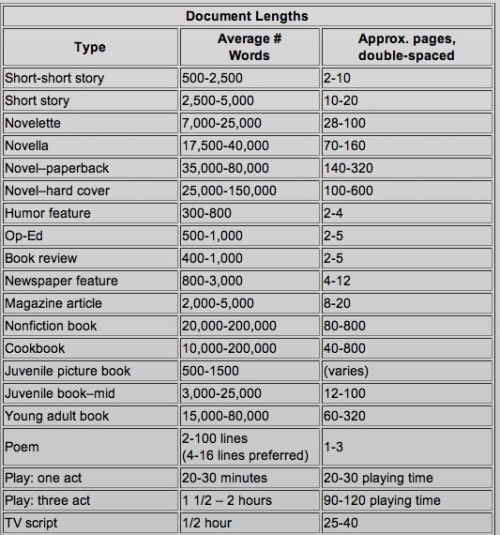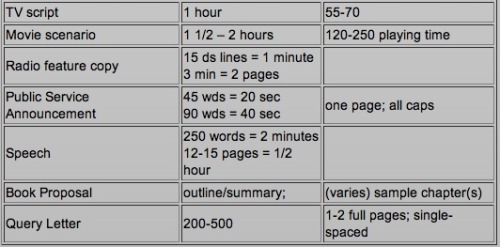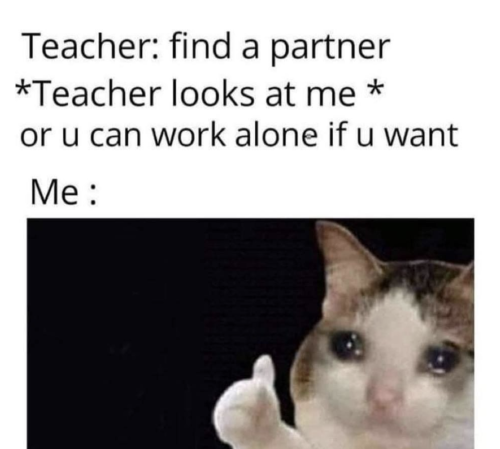Justanothergirlsblog - =A Weird Girl=

More Posts from Justanothergirlsblog and Others
“Believe with your eyes, not with your ears.”
— Unknown
“Speak when you are angry and you will make the best speech you will ever regret.”
— Ambrose Bierce (via quotemadness)
“Your life is a puzzle, dont waste your time trying to place people where they don’t fit.”
— Wiz Khalifa


I wanted to double check that “The Cherry on Top” was a short novel or novella and I found this on uphillwriting.org. I think it’s very informative and hopefully you guys will find it useful!

“The fact that I’m silent doesn’t mean I have nothing to say.”
— Jonathan Carroll
Skipping time in your story
When writing you’ll most likely skip time in your story. It’s very rare that you will come across a story during a short, unbroken chunk of time. So, skipping time is an important skill to learn, and I’m here to help!
Scenes and Chapters
With the exception of very short fiction, most stories are broken into scenes. Each scene tells the tale of a particular movement or event. In longer stories, such as novellas and novels, the scenes are grouped into chapters. Sometimes a chapter contains only one scene. It all depends on what needs to be conveyed in the certain chapter. Either way, starting a new scene or chapter is a natural way to represent the passage of time in your story. Unless stated, readers will automatically assume that time has passed between each scene. But, that doesn’t mean that you shouldn’t make the transition between each scene, because without that transition, the passage of time will seem clumped together and won’t flow properly.
The key to skipping time between scenes or chapters can be done two different ways:
Set up the time skip: At the end of the chapter, hint at what is to come.
Example: My eyes focused on the board in front of me, the words reminding me of my impending doom. Our first test of the year in a class I hadn’t paid attention to at all. My heart rate accelerated as I wondered how well I will do on the upcoming test.
Clarify time, place and -if necessary- POV at the beginning of the new scene, or chapter, playing off the set up from the previous scene or chapter.
I found myself back in school monday. As I walked into class, my eyes twitched and my hands shook. I took my seat, all the way in the back of the classroom, chewing on my pen cap, wishing I had studied.
Notice how the set up at the end of the previous scene/chapter flows seamlessly into the beginning of the new scene/chapter? Because the passage of time is expected between scenes and chapters, it’s not always necessary to be direct about how much time has passed. Especially if the amount of time is unimportant or already implied.
Direct: Early on Monday morning Margaret dragged herself out of bed, painfully aware that her ability to pass highschool hinged on the test she would be taking today. She hated the uncertainty of what was ahead, but what grinds her gears even more was the thing she did know: today was going to be a horrible day.
Two hours later, Margraet walked into her classroom, cold coffee in hand, trying to seem bubbly and happy even though she knew that her entire life depended on whether or not she failed this test.
Less Direct: Early on Monday morning Margaret dragged herself out of bed, painfully aware that her ability to pass highschool hinged on the test she would be taking today. She hated the uncertainty of what was ahead, but what grinds her gears even more was the thing she did know: today was going to be a horrible day.
With cold coffee in hand, Margaret sat down in her seat, trying to seem bubbly and happy even though she knew that her entire life depended on whether or not she failed this test.
In the second example, even though you don’t say “two hours later” it’s clear that time has passed, and so has the setting. No one is going to assume that Margaret is going to be taking her test in her bedroom. Try to save “two hours later” and “walked into the classroom” transitions for when the context would otherwise be unclear, or when those specific details (how much time or a specific location) would be important.
If no time is passing between the two scenes or two chapters, try to make that clear. For example, if one scene ends with Margaret falling asleep and then being woken up by a loud knock at her door, the next scene should continue with something like, “Heart pounding from shock, Margaret jumped out of bed to see who is at her door.” Now, it is clear no time has passed in the next scene, but since a new situation is beginning, it still warrants being its own scene.
Expository Time Skip
Sometimes you need to show a quick glimpse of something that happened but it doesn’t really warrant its own scene or chapter. In this case, you may want to illustrate the time skip using exposition within the scene. It may look something like this:
Winter Break was over in a blink, and I soon found myself back at school, dealing with all the problems I left behind during a break that felt far too short. I quickly headed to my locker, avoiding Melinda and the newly formed rift between us. She glared at me across the hallway as I spun the combination on my locker.
Later that day, during lunch, I sat at the table Micheal and I had always sat at. Despite the amount of people in the lunchroom, I could still feel Melinda’s icy glare shooting me down.
Terms such as “later that day” and “two hours later” help the readers understand that time has passed, without transitioning to a new scene or chapter. This allows you to cover smaller moments and events that don’t warrant their own space.
Whether you use a transition between scenes or chapters to show the passage of time, or whether you clarify the skip between time through exposition, just remember to pay attention to where you left the readers before the skip, and where you take them. Make sure it’s clear, flows well, and wouldn’t leave anyone confused. Do that and you’ll be in good shape! Happy writing!
“You have to meet people where they are, and sometimes you have to leave them there.”
— Iyanla Vanzant
Character development doesn't refer to character improvement in a moral or ethical respect. It refers to broadening the audience's understanding of that character, giving the character a deeper background, clearer motivations, a unique voice.
Developing a character is about making them seem more like a real person, and real people are flawed. Real people make mistakes. They repeat mistakes. They do things other people don't agree with. Real people are more than just 'good' or 'bad' and character development is about showing all of those other aspects of them.
Their interests and hobbies. The song that gets stuck in their head. The fact that their vacuum broke 3 months ago and they haven't gotten it fixed yet. All of those details help build out the character and develop them more.
And yes, characters change as stories progress but that doesn't mean they get 'better' in a strict moral sense. It means that their experiences change the way they interact in the world you've written for them. Just like real people do.
Researching for WIPs : A Collection

Patreon || Ko-Fi || Masterlist || Work In Progress
–
Historical Fiction
Resources For Writing (Global) Period Pieces : High Middle Ages & Renaissance
Resources For Writing (Global) Period Pieces : 1600s
Resources For Writing (Global) Period Pieces : 1700s
Resources For Writing (Global) Period Pieces : 1800s
Resources For Writing (Global) Period Pieces : 1900-1939
Resources For Writing (Global) Period Pieces : 1940-1969
Resources For Writing (Global) Period Pieces : 1970-1999
Resources For Writing Royalty
Procedural/Scientific
Resources For Crime/Mystery/Thriller Writers
Resources For Writing Dystopian/Post-Apocalyptic Stories
Resources For Writing Sketchy Topics
Resources For Writing The Mafia
Resources For Writing Injuries
By Genre
Resources For Fantasy/Mythology Writers
Resources For Writing Science Fiction
Resources For Romance Writers
Other
Resources For Plot Development
Resources For Describing Physical Things
Resources For Describing Characters
Resources For Creating Characters
Resources For Worldbuilding
Resources For Describing Emotion
–
Masterlist | WIP Blog
If you enjoy my blog and wish for it to continue being updated frequently and for me to continue putting my energy toward answering your questions, please consider Buying Me A Coffee, or pledging your support on Patreon, where I offer early access and exclusive benefits for only $5/month.
Shoutout to my $15+ patron, Douglas S.!
-
 nd826nd reblogged this · 2 years ago
nd826nd reblogged this · 2 years ago -
 1imsocrazy1 liked this · 2 years ago
1imsocrazy1 liked this · 2 years ago -
 diegoelunico liked this · 2 years ago
diegoelunico liked this · 2 years ago -
 featheredadora liked this · 2 years ago
featheredadora liked this · 2 years ago -
 littlevnavy reblogged this · 2 years ago
littlevnavy reblogged this · 2 years ago -
 littlevnavy liked this · 2 years ago
littlevnavy liked this · 2 years ago -
 20miglia reblogged this · 2 years ago
20miglia reblogged this · 2 years ago -
 classyinheels reblogged this · 2 years ago
classyinheels reblogged this · 2 years ago -
 classyinheels liked this · 2 years ago
classyinheels liked this · 2 years ago -
 mayapapaya0926 reblogged this · 3 years ago
mayapapaya0926 reblogged this · 3 years ago -
 xx-xx9 reblogged this · 3 years ago
xx-xx9 reblogged this · 3 years ago -
 fearless-life-explorer liked this · 3 years ago
fearless-life-explorer liked this · 3 years ago -
 theoneelva liked this · 3 years ago
theoneelva liked this · 3 years ago -
 1choppha liked this · 3 years ago
1choppha liked this · 3 years ago -
 ali-loves liked this · 3 years ago
ali-loves liked this · 3 years ago -
 spiritualgal liked this · 3 years ago
spiritualgal liked this · 3 years ago -
 millymollyme liked this · 3 years ago
millymollyme liked this · 3 years ago -
 his-dahlia liked this · 3 years ago
his-dahlia liked this · 3 years ago -
 imthatbiatch reblogged this · 3 years ago
imthatbiatch reblogged this · 3 years ago -
 lost-dreams-buried-in-my-sleep reblogged this · 3 years ago
lost-dreams-buried-in-my-sleep reblogged this · 3 years ago -
 lost-dreams-buried-in-my-sleep liked this · 3 years ago
lost-dreams-buried-in-my-sleep liked this · 3 years ago -
 neva-cleva liked this · 3 years ago
neva-cleva liked this · 3 years ago -
 bitchdontkillmyvibe-20 liked this · 3 years ago
bitchdontkillmyvibe-20 liked this · 3 years ago -
 likewisethesame liked this · 3 years ago
likewisethesame liked this · 3 years ago -
 staystrongg155 reblogged this · 3 years ago
staystrongg155 reblogged this · 3 years ago -
 darkredpuffer liked this · 3 years ago
darkredpuffer liked this · 3 years ago -
 tinyshe reblogged this · 3 years ago
tinyshe reblogged this · 3 years ago -
 sickcrocodile reblogged this · 3 years ago
sickcrocodile reblogged this · 3 years ago -
 carturthepenguin liked this · 3 years ago
carturthepenguin liked this · 3 years ago -
 cocoamores liked this · 3 years ago
cocoamores liked this · 3 years ago -
 memories-of-us-tonight liked this · 3 years ago
memories-of-us-tonight liked this · 3 years ago

I'm just a weird girl who likes to read about history, mythology and feminism.
207 posts